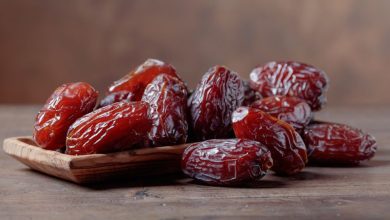What are the natural ways to treat gas pain?

Gas is a material without a set size or shape. The Gas within the digestive system is composed of air and other gasses. People find it difficult to talk about Gas, although everyone has Gas in their intestines. Gas can interfere with people’s everyday lives by generating a feeling of fullness (bloating), abdominal pains, belching (burping), and flatulence (accumulation of Gas in the stomach). Some individuals are particularly sensitive to Gas and experience the preceding symptoms even when exposed to typical Gas levels. Gas in the intestines is a normal result of food digestion; anybody might occasionally feel gassy. Furthermore, this blog will help you understand tips to treat gas pain and when to worry about gastric pain.
What creates too much Gas?
Most people pass Gas 5 – 21 times daily, a typical byproduct of the digestive process. The bacteria in our stomach break down the fibers and starches in our food, producing a variety of gasses such as carbon dioxide, oxygen, nitrogen, hydrogen, and methane in the process. Beans and cruciferous vegetables, for example, might increase the quantity of Gas you create. Because some people are sensitive to natural sugars like fructose and lactose, foods like onions, wheat, and dairy products can cause them to become extremely gassy.
Swallowing air might cause trapped Gas in our abdomen. We are more prone to swallow more air when we eat rapidly, use straws, chewing gum, or gulp liquids.
What are the symptoms of Gas?
Although farts and burping are the most visible signs of Gas or acidity, there are a variety of additional symptoms related to Gas, including:
- Cramps in the stomach
- Bloating
- Nausea
- Vomiting
- Sounds of gurgling or bubbling
- Pain in the abdomen
Tips to Avoid Gas or bloating issues – Following are a few lifestyles modification and dietary changes that may help you to prevent gastric issues or bloat –
- Exercise Mindful Eating – Talking while eating, eating too much, or eating when you’re upset are all causes of Gas. This is why it’s important to eat slowly, chew your food thoroughly and without speaking, and stop eating when you feel full. Mindful eating can help you eat slowly and consume the appropriate amount. Being present and aware of the eating process is what mindful eating entails.
- Get Comfortable – It may seem strange, but tight-fitting clothing can contribute to Gas. Wear loose-fitting bottoms to help your body—pants that don’t hug you too tightly around the waist should fall in place.
- Try Different Foods – Certain foods may cause more Gas and bloat than others. Keep a food chart if you want to figure out which foods might trigger gas issues. Keep a record of what you eat at each meal and when you experience Gas and bloating.
- Stay active – Physical activity promotes healthy digestion, and studies show that taking a slow walk after a meal can help relieve Gas and bloating.
Mild physical activity [such as walking] improves intestinal gas clearance and reduces symptoms in patients complaining of abdominal bloating.
Also, Smell your food, taste it, and chew it thoroughly. You’ll enjoy your food more, make it easier for your body to digest nutrients, and you’ll probably feel fuller faster if you practice mindful eating.
Natural remedies for Gas treatment at home –
Your mother and grandmother continue to share kitchen hacks that have proven to be the best home remedy for gas problems. So, trust your loved ones and try these home remedies.
- Water – Drinking plenty of water promotes regular bowel movements and helps to prevent stomach problems. Hydration can also help avoid constipation, a major cause of acidity. Dehydration causes a person’s stool to become dry and hard. Water keeps stool soft, allowing it to pass easily through the colon.
- Coconut water – Coconut water is a true tonic and one of the most effective tips for treating gas pain. It’s refreshing and a great replacement for a sugary energy drink. It’s high in potassium, which helps to prevent bloating caused by sodium. Coconut water not only cleanses the body of sodium but also regulates the cleansing process.
- Cucumbers – Cucumbers are mostly water and can aid in the removal of toxins from the body. They are high in sulfur and silicon and aid in the removal of uric acid by the kidneys. They’re not only detoxifying but also delicious and refreshing.
- Buttermilk – Buttermilk can help with gas problems. Chaas or buttermilk is served after Indian meals because it aids digestion and absorbs food. It also reduces the likelihood of acidity occurring and maintains good gastrointestinal health.
- Ginger – Fresh ginger is an excellent home remedy for fever, colds, and aching muscles and for soothing an upset stomach. It’s an anti-inflammatory that relaxes the digestive tract’s muscles. It contains an important enzyme that absorbs protein and aids in the removal of protein-induced Gas. It can be mixed into tea or sprinkled on salads and vegetables.
- Peppermint Tea – Peppermint tea is sometimes referred to as “the stomach healer” since it is believed to relieve stomach aches, pains, cramps, heartburn, gas/flatulence, indigestion, and diarrhea and to promote good digestion.
- Ajwain water – When you have acidity, indigestion, or acid reflux issues, try drinking ajwain water or eating carom seeds. When taken with a bit of salt and a glass of warm water, Ajwain is beneficial for indigestion and stomach pain. Ajwain water is one of the newborns’ most preferred tips to treat gas pain.
Is Gas ever a cause for concern?
Most of the time, Gas is not a cause for concern. Many benign causes of Gas, such as certain foods, do not necessitate diagnosis or treatment.
Excess Gas, on the other hand, may indicate a more serious underlying problem in some circumstances. Some of the potential causes of Gas that a person should discuss with their doctor include:
- gastroesophageal reflux syndrome (GERD)
- IBS
- issues with nutrition absorption
- lactose sensitivity
- intolerance to fructose
- poisoning from food
- celiac illness
- the stomach flu
- Bacterial overgrowth
- intestinal obstruction
An abdominal hernia, excess tissue in the stomach, colon cancer, and ovarian cancer are among conditions that can cause a blocked intestine.
Conclusion –
Although Gas is a natural bodily function, it can sometimes be uncomfortable and unpleasant. Knowing which foods tend to create Gas might aid in identifying and avoiding dietary causes of Gas and bloating.
Gas-causing foods are either difficult to digest, include ingredients that produce Gas during digestion, or cause people to swallow more air than usual. Most of the time, Gas is not a sign of a significant problem. People can often minimize flatulence and bloating by making dietary and lifestyle adjustments. But if you are experiencing Gas or bloating issues more frequently, you must consult a gastroenterologist in Bangalore for an accurate diagnosis and treatment.





